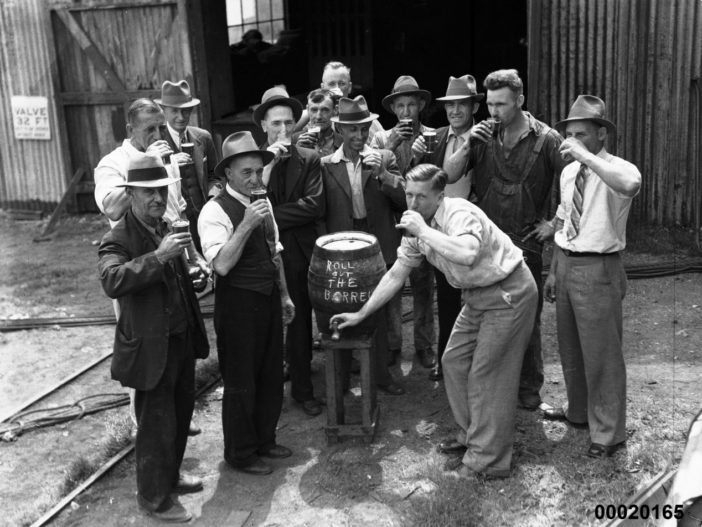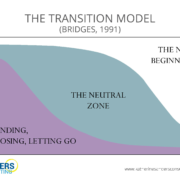The Decision to Trust
By Katherine Sanders
Trust. We don’t tend to think about it until we realize it’s missing.
Maybe your boss decides you’re going to work on a new team and you feel hesitant, wary. Turns out you might not trust your new teammates – not because they aren’t nice people, but perhaps because you don’t trust their technical competence. Or their work ethic. Or their ability to meet deadlines. Or their intentions…
Or maybe you’re the boss, and to introduce some sanity into your own work life you’ve been thinking about delegating. You know intellectually that delegating would free up some of your time to focus on strategy and big-picture goals. You also realize your staff might need more variety, more creative challenge built into their own work lives.
But you find yourself hesitating. You remember that time, months or years ago, when you depended upon Jo (or Joe) for something important. But s/he let you down. You didn’t say anything about it at the time, but you made a mental note, “Can’t always count on Jo/e. Easier to do it myself.”
Trust is one of the most important attributes in a work team and we seldom talk about it.
We do even less to address it. Some teams might go on an occasional retreat and do ‘team building’ exercises, which might be fun and worthwhile. Or they might be hokey and a waste of time. Or a team can go out for a drink after work and call that ‘team building.’ Maybe it is.
But, it’s unlikely these scenarios will affect the level of trust between co-workers. The fun-loving folks might have a good time with one another, and some might become personal friends. But many of the factors affecting trust at work aren’t addressed by general socializing.
Why isn’t it enough to like someone in order to trust them at work?
Well, it’s because trust is more complicated than whether we like or enjoy someone. And even if we do trust someone, we might not trust them in all situations.
For example, I might work with someone who loves animals, and when I travel I trust them to take care of my precious kitties. But that same person – who I trust to be in my home, taking care of family members I love – might not be a good fit to work on a project with me. Maybe I know them to be kindhearted and passionate about animals, but less-than-passionate about our joint collaborative project.
Building trust in a working group requires that we think and talk about trust in a more precise way.
Robert F. Hurley (2006) has a great article in the Harvard Business Review called “The Decision to Trust.” It is one of my favorite articles because it talks about both the situational and self-awareness factors that lie underneath the surface when taking a leap of faith to depend upon someone else.
We ask ourselves:
- How similar to me is this person?
- Has this person shown predictability and integrity in the past?
- Is this person capable?
- Has this person shown concern for my personal wellbeing in the past?
- How well-aligned are our intentions?
And the leap of faith is also shaped by our own psychology:
- How risk tolerant am I?
- Do I believe the world is a relatively benign place?
- How much relative power do I have compared to the person I am considering trusting?
When we ask someone to trust us, it’s helpful to keep in mind the personal and situational factors in play. Trust isn’t static. Every day our behaviors effect if/when people trust us. Similarly, each interaction we have with our colleagues shapes how much we trust them.








